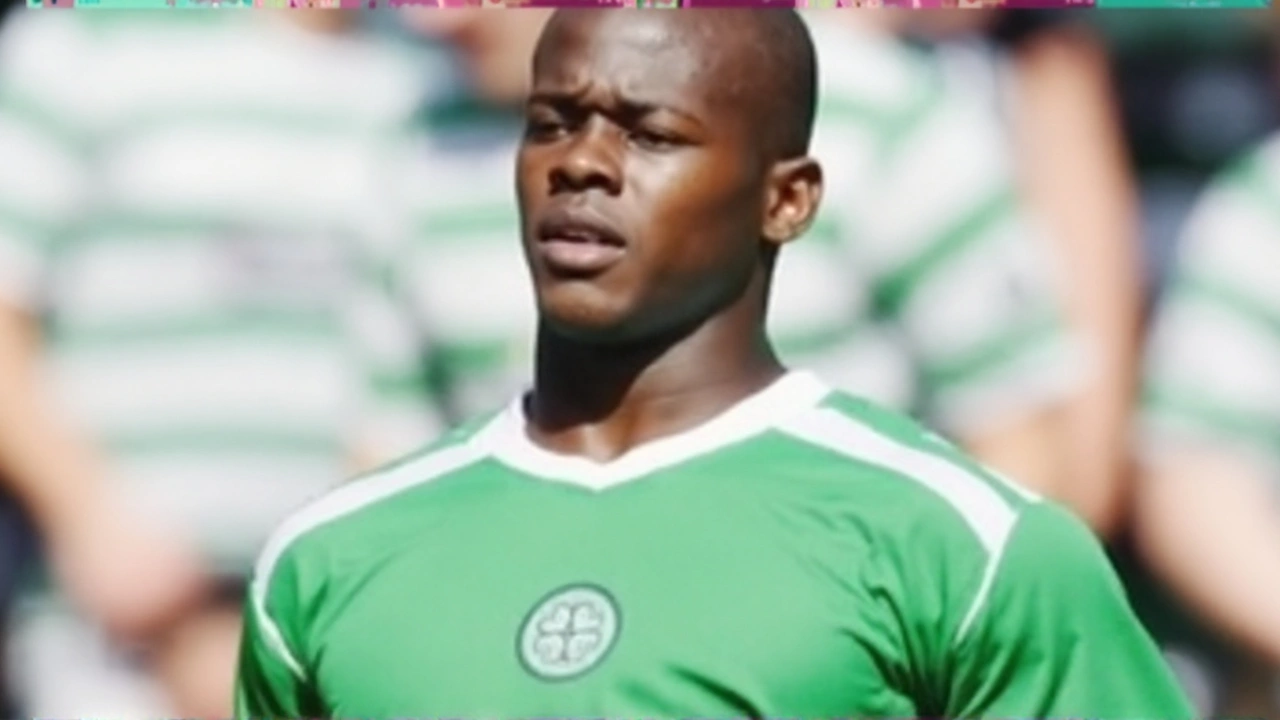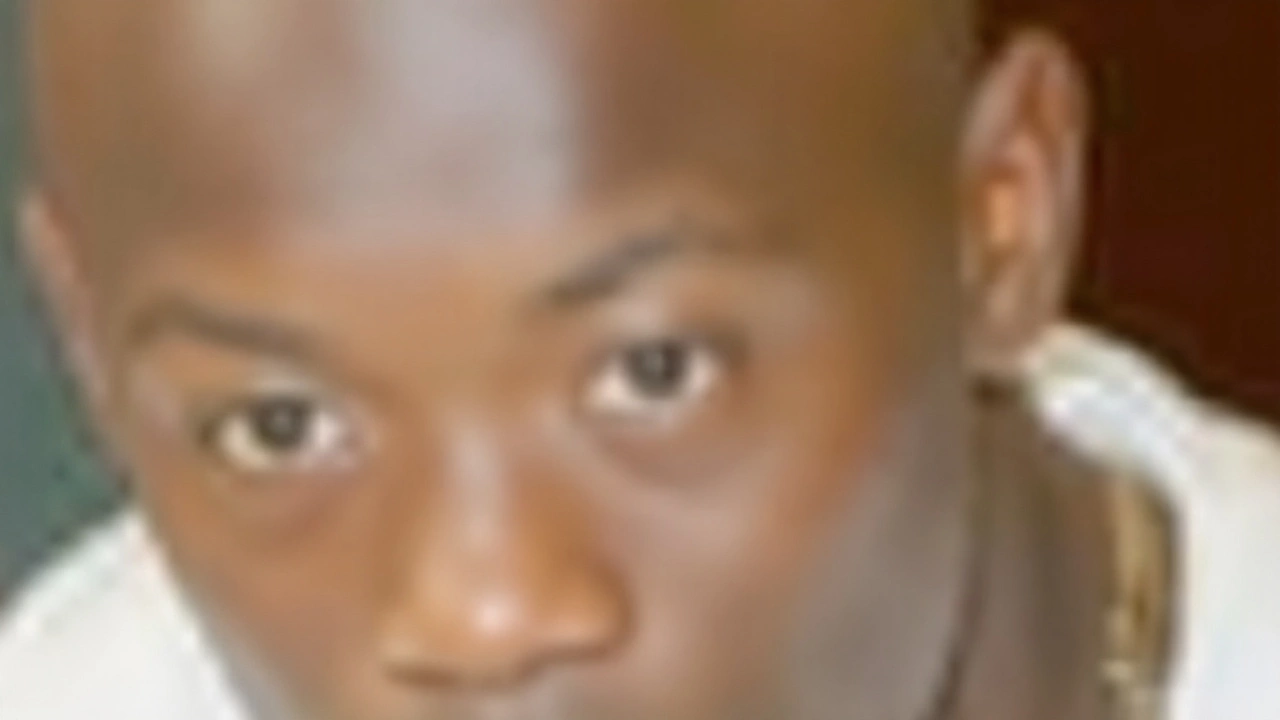£728,000 per appearance. That’s the number doing the rounds at Celtic Park, and it explains the mood. Veteran defender Bobo Balde has rejected a £27,500-a-week offer from Wolves, opting to run down his deal in Glasgow despite barely seeing a minute of football over the past two seasons. The decision has angered senior figures at the club and turned a long, awkward stalemate into a full-blown strategic headache.
The 33-year-old, a mainstay for Celtic in the early 2000s, has played just four first-team games in two years. Yet his contract remains one of the most expensive on the books. With his deal winding down, Wolves and Burnley have both shown interest. But talks have repeatedly hit the same wall: Balde’s refusal to sign confidentiality agreements tied to a move, and his determination to keep control of his own story.
A standoff years in the making
Balde has been at Celtic for eight seasons, a period that includes a Player of the Year nod in 2003 and a run to the UEFA Cup Final that same year. He was once the club’s defensive anchor—physical, fearless, and a reliable presence in European nights. The second act has been far less glamorous: injury setbacks, managerial changes, and a wage packet that no longer aligns with his role in the squad.
Behind the scenes, the mood has hardened. Chief executive Peter Lawwell is said to be exasperated by how little progress has been made in moving the defender on. When Birmingham City matched Balde’s salary in a previous window, Lawwell called the player in to urge him to take the deal. Balde’s answer is still being quoted around the corridors at Lennoxtown: “You are chief executive of Celtic Football Club, I am the chief executive of Bobo Balde.”
Sources say he’s kept meticulous records of his dealings with the club—emails, letters, meeting notes—the lot. That in itself has fed a bigger dispute: confidentiality. Prospective moves, according to people close to the discussions, have included requests for Balde to sign non-disclosure agreements that would limit what he can say about his time at Celtic. He has refused. The stance isn’t about staying in Scotland forever, those same sources say; it’s about not being gagged on the way out.
From Celtic’s side, the reasoning is obvious. The club has tried to modernize operations under Lawwell and keep tight control of sensitive internal matters—squad management, wage structure, and how high earners are handled when they fall out of the first-team picture. A player who has barely featured but earns a top salary is tough to justify in any era, but especially now. Moving him on would free up money and space. Failing to do so keeps a spotlight on the wage bill and raises uncomfortable questions about decision-making.
Wolves and Burnley, meanwhile, have both floated offers that would give Balde a fresh start and regular football. The Wolves proposal, at £27,500 per week, was competitive. But without agreement on the legal side, the football side never moved forward. With his contract ticking down, Balde also knows he can enter the market as a free agent and potentially secure an even better package—signing-on fee, bonuses, and the right deal terms—without the baggage.
This is where leverage matters. Players at the tail end of a deal often choose to hold their nerve. If they believe they’ve been sidelined unfairly, they stick to the contract they signed and walk free when it ends. Clubs will call it disruptive. Players will call it professional. In Balde’s case, you can see why both sides are dug in.

NDAs, power, and precedent in football deals
Confidentiality has become standard in parts of the football business—commercial deals, medicals, exit settlements, and sensitive disputes. But folding NDAs into a player’s exit, especially when that exit is to another club, is tricky. It suggests there are stories no one wants told. And it gives the player a reason to pause. If he thinks his reputation took a hit while he was sidelined, why would he agree to stay silent after leaving?
For Celtic, the risk is not just a short-term PR flare-up. It’s precedent. Insisting on confidentiality as the price of a move could spook other players and agents, making future negotiations harder. Yet allowing a high earner to sit idle and run down his contract is also a precedent—one that can ripple through a dressing room. If a senior pro can sit tight and get paid, others will notice.
The numbers make the optics worse. Four games in two seasons, at a rough cost per appearance that would make any chief executive wince. That figure will be debated—there are bonuses, amortized fees, and the fine print of contracts—but the headline is damaging. It doesn’t matter how you slice it: Celtic are paying a lot for a player who isn’t playing.
What comes next is a narrow set of choices. The club could attempt a mutual termination with a settlement, though that usually brings its own confidentiality strings. They could keep pushing for a late-window move if an interested team agrees to terms everyone can live with. Or they wait it out. If Balde stays, he remains available but peripheral. If he leaves in the summer as a free agent, he likely lands a cleaner, more lucrative personal deal elsewhere.
On the pitch, there’s still a player there. Balde’s style—strong in the air, dominant in duels—once defined Celtic’s back line. At 33, he won’t be the long-term answer for anyone, but for a club needing old-school defending and a voice in the back four, he can still be useful. That’s why Wolves and Burnley have circled. They see a short-term solution at a fair wage, provided the legal pieces fall into place.
For Celtic, this is also about culture. Lawwell’s era is often framed around discipline, structure, and sustainability. The Balde situation tests all three. It touches recruitment, contract design, and how to handle legacy players who outlast the managers who trusted them. It’s a case study other clubs will clip and save: a reminder that tough decisions up front prevent hard choices later.
There’s a human layer to it too. Players aren’t assets on a spreadsheet; they’re people with careers that only last so long. Balde has chosen control over speed. He could have taken the wage cut and gone. He didn’t. He’s betting that a free-agent market—and a clean break on his terms—will be better than a mid-season exit with strings attached.
As the clock runs down, two truths hold at the same time. Celtic need this to end. Balde is in no rush. The stand-off remains, and unless someone blinks on the confidentiality question, it’s likely to drift all the way to the final day of his deal—at significant cost, and with eyes across the league watching how it plays out.
